
The Ford School’s Weiser Diplomacy Center officially launched last fall with visits from an all-star lineup of leaders in foreign affairs. Each visitor also met with students, faculty, and alumni in a variety of settings while in Ann Arbor.
How do you end conflicts through diplomacy conflict resolution? You need to have talented people who invest themselves in the substance of these places.
Samantha Power, former U.S. Ambassador to the United Nations, discusses her book Education of an Idealist, at the annual Vandenberg Lecture, September 25, 2019.
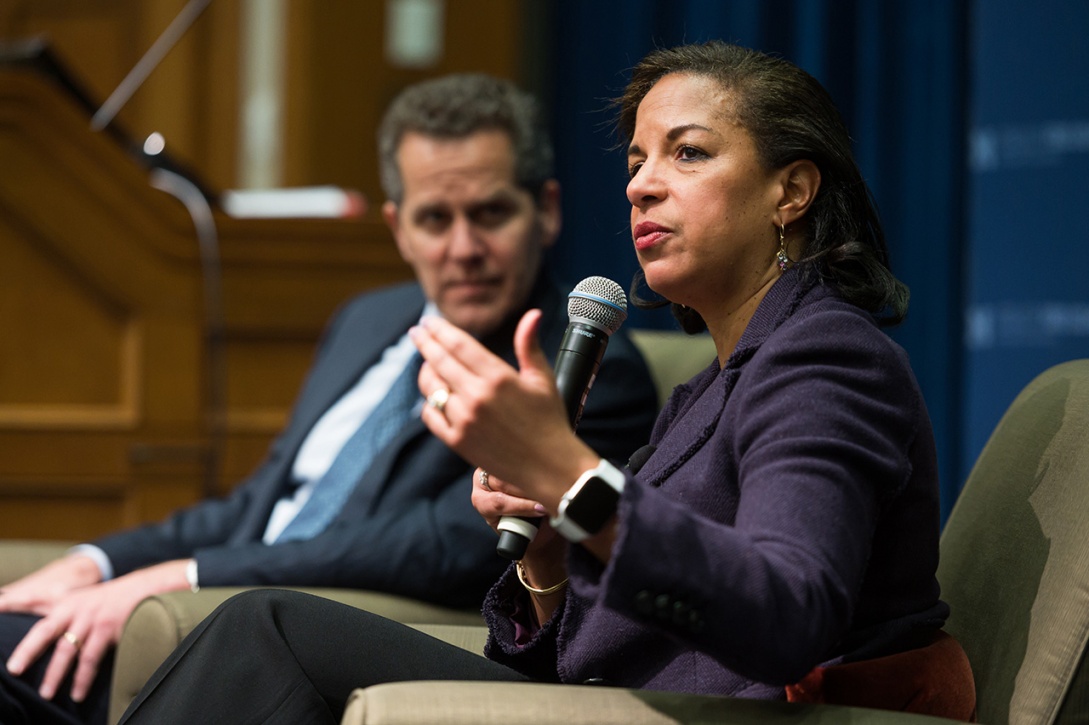
MLK first said: ‘The arc of the moral universe is long, but it bends toward justice’ in 1965. But nobody is going to do that bending if not for you and me.
Ambassador Susan Rice, former National Security Advisor and U.S. Ambassador to the United Nations, discussing her book, Tough Love: My Story of the Things Worth Fighting For, January 20, 2020.
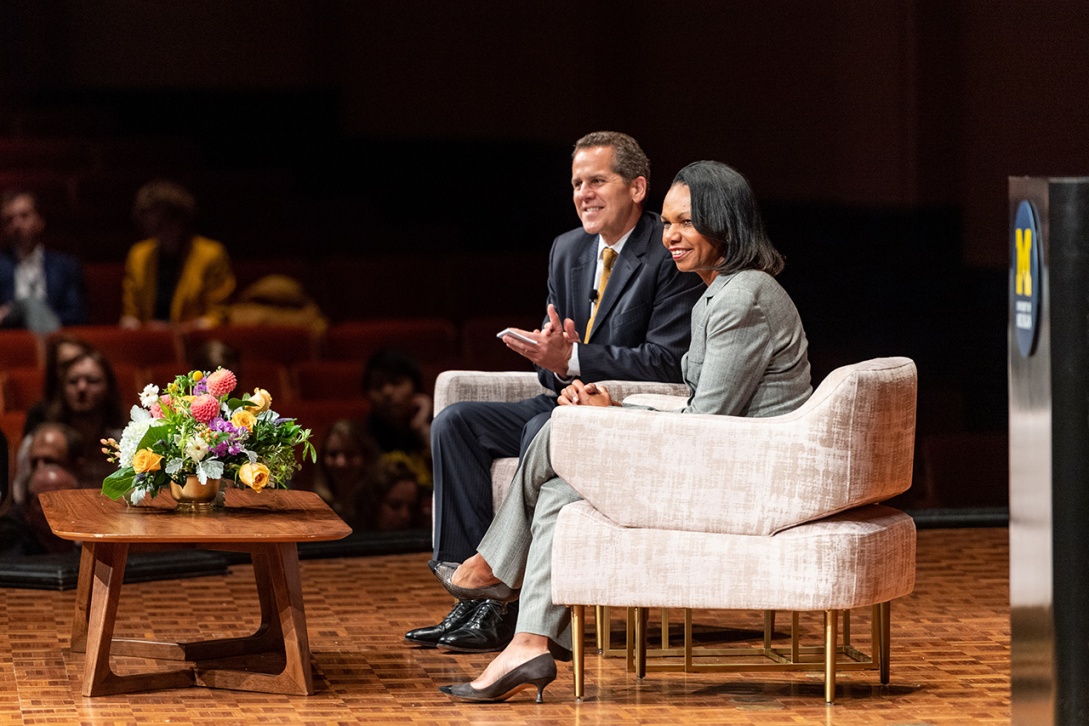
The goal of diversity is not to remind us how we’re all different. It’s to take people from different experiences and backgrounds and help us find a common future, and I think we are failing at it, and it’s beginning to cause rifts.
Condoleezza Rice, former U.S. Secretary of State. "Democracy and America's foreign policy identity: a masterclass with former U.S. Secretary of State Condoleezza Rice," October 4, 2019.
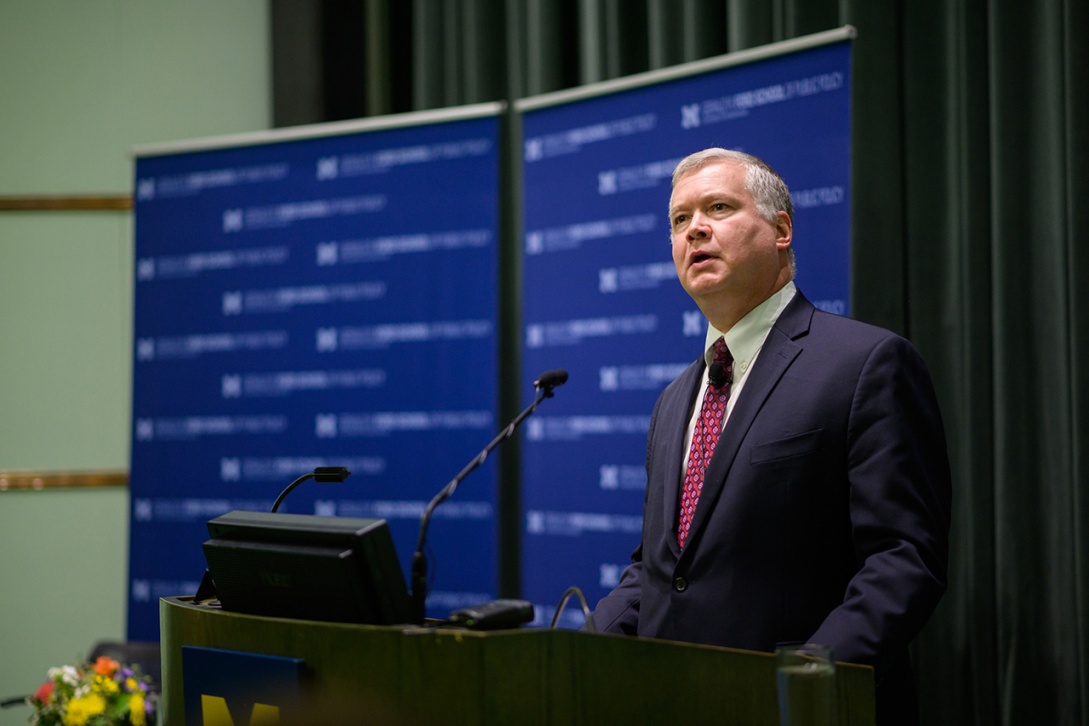
Through direct engagement we must create space and momentum for diplomacy.
Stephen Biegun, then U.S. special representative to North Korea, and now U.S. Deputy Secretary of State, discussing the United States’ denuclearization efforts with North Korea. "International diplomacy challenges," September 6, 2019.
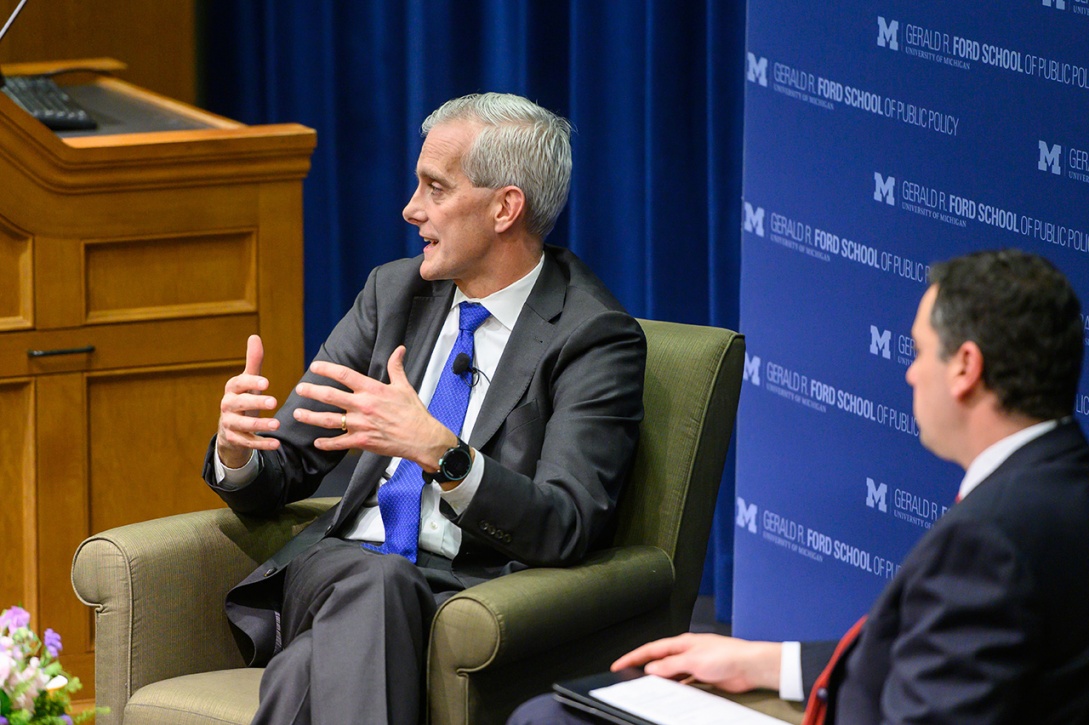
Here's what works: science works. Best available data works....Make your decision based on best available science. Not on bias, not on prejudice, not on what might be in your best political interest, but rather on science.
Denis McDonough, former White House Chief of Staff. New frontiers: Labor, immigration, and foreign policy," February 26, 2020.
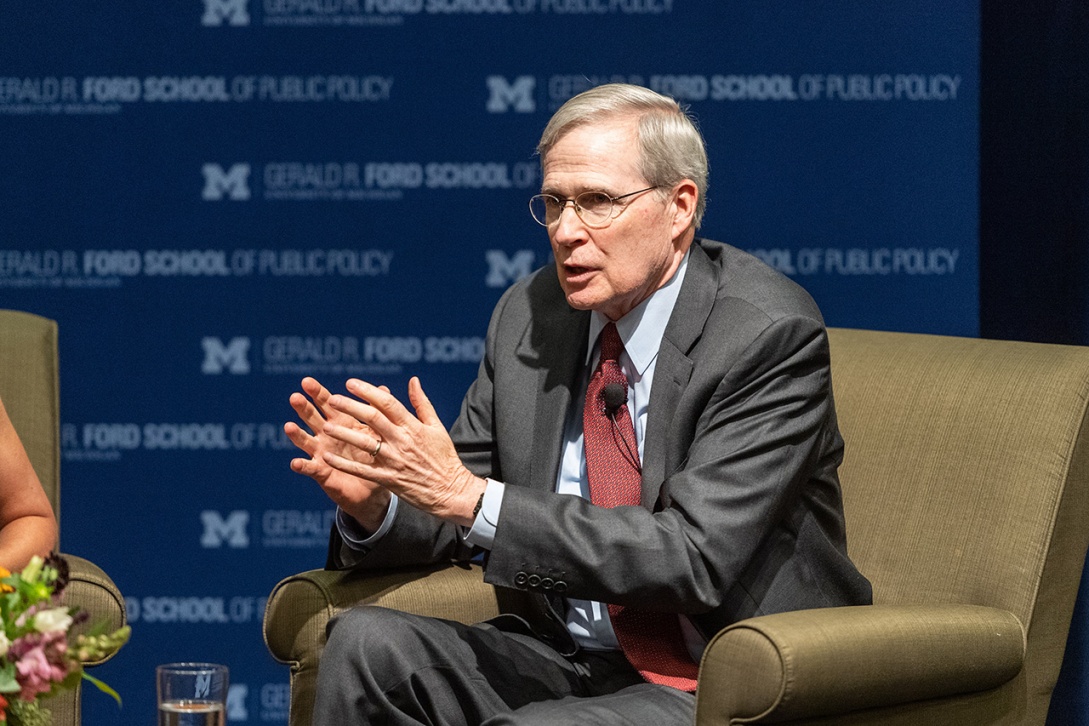
[The United States] stands for the principles of freedom, democracy, human rights, rule of law...How much should American foreign policy reflect these ideals?...I always felt the highest American interest is to have a world that reflects our ideals because then the world is more congenial to American interests.
Stephen Hadley, former national security adviser; on a panel with Daniel Fried, former assistant secretary of state; and Liz Schrayer, president & CEO of U.S. Global Leadership Coalition. "Diplomacy in a new transatlantic era," September 13, 2019.
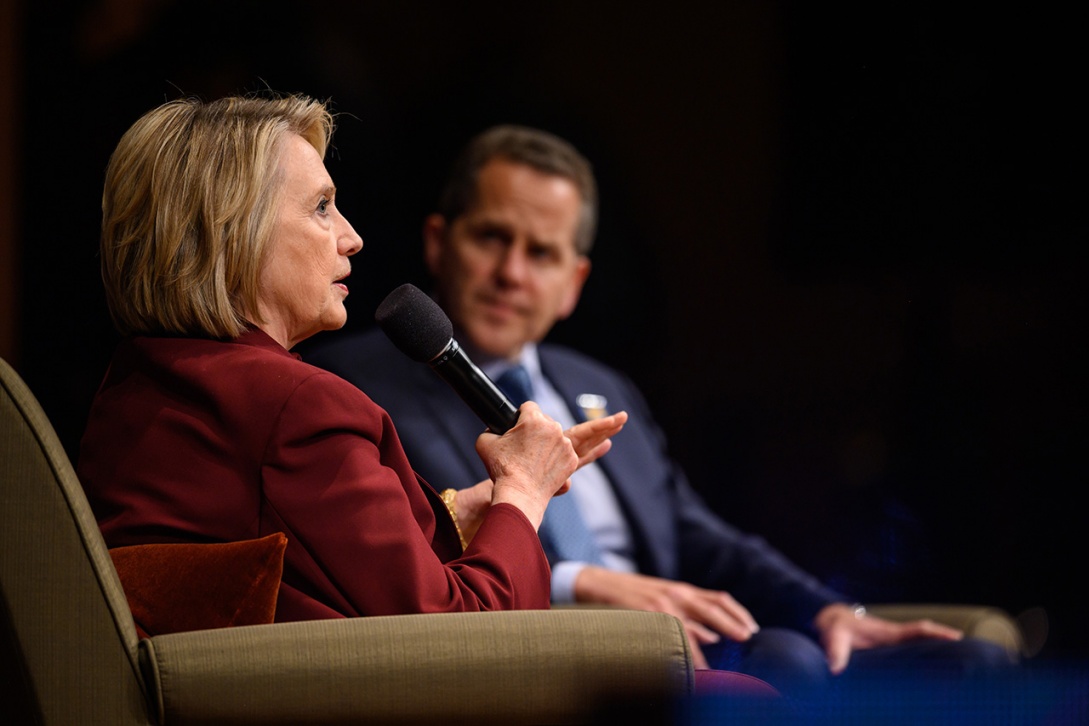
We've got to get back to listening to each other and working with each other. We've got to start showing that democracy can work again. We've got to have debates that actually lead to decisions being made and action being taken. It's the next generation of leaders who are going to have to model the best way to do that.
Hillary Clinton, former U.S. Secretary of State. "Reflections on foreign policy: Defense, diplomacy, and development," October 10, 2019.
[Middle Eastern] countries have an enormous sense of history....You need to understand the history, understand where people are coming from, and then go and learn to listen.
Ambassador Ronald Neumann, with Ambassadors Gerald Feierstein, John Limbert, Ronald Neumann and Deborah McCarthy. "The U.S., Iran, and security in the Persian Gulf," November 21, 2019.
Below is a formatted version of this article from State & Hill, the magazine of the Ford School. View the entire Spring 2020 State & Hill.